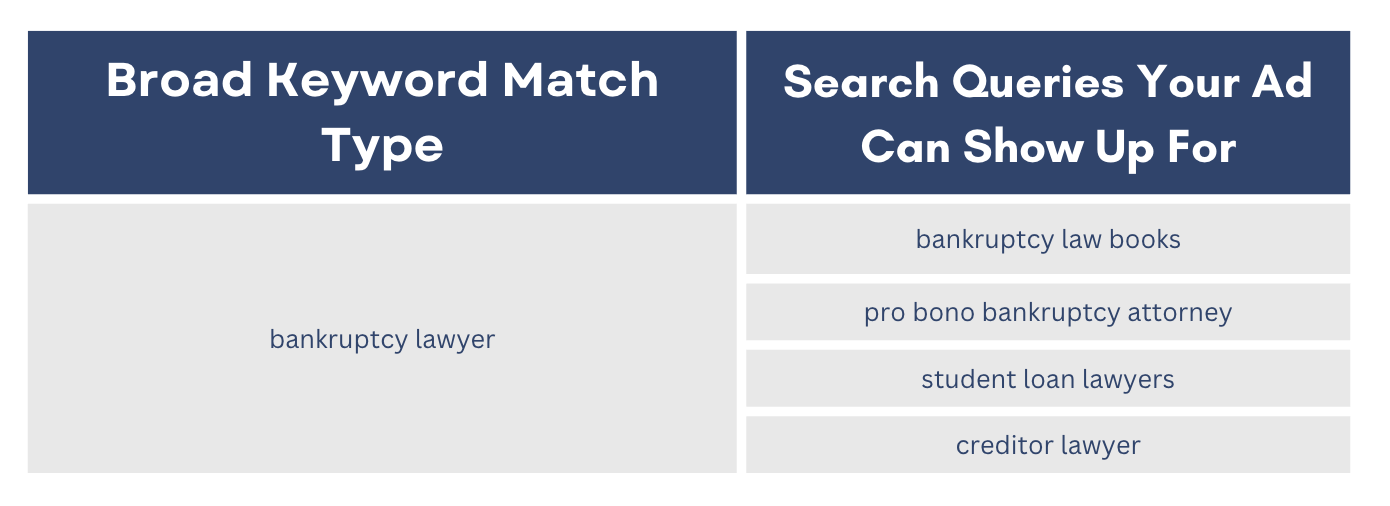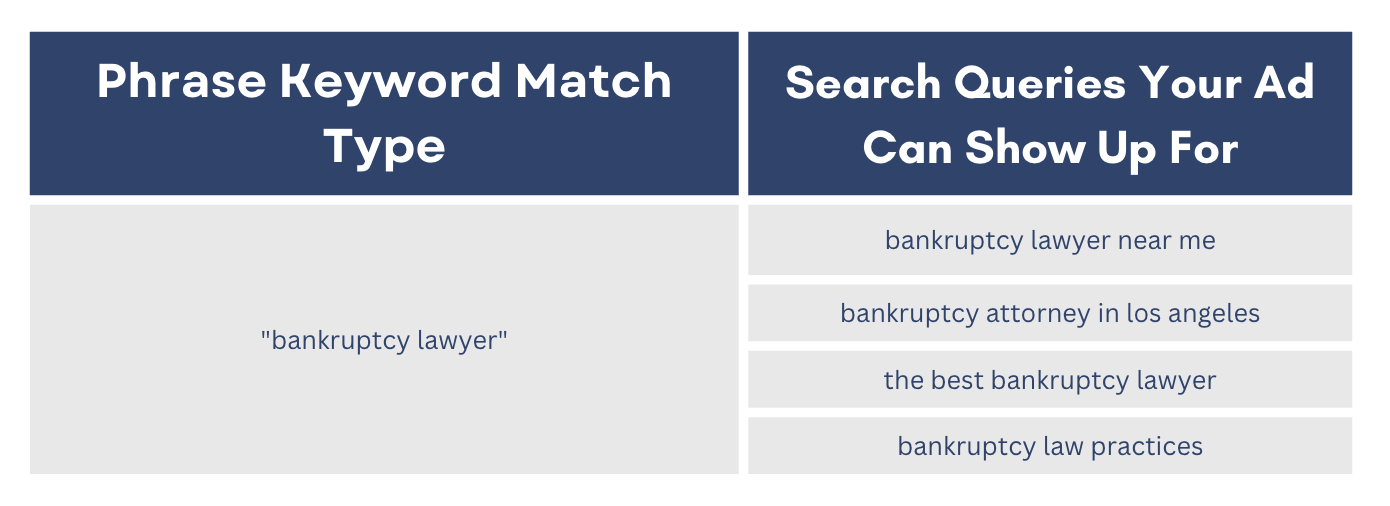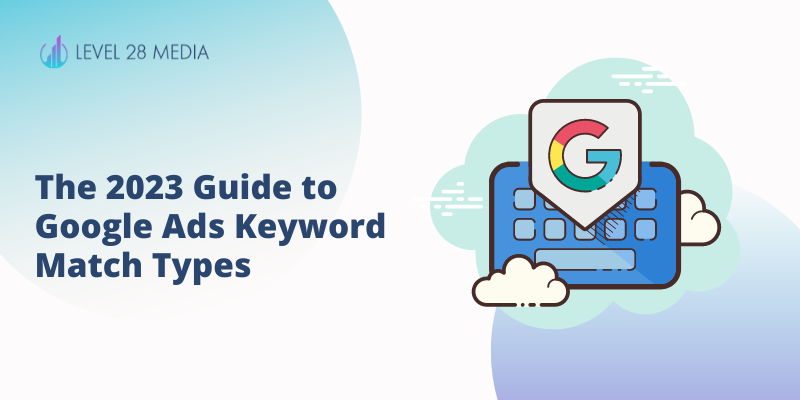Are your ads appearing for irrelevant search terms? If so, you might not be using the right keyword match types.
By using the right keyword match types, you can increase the likelihood of your ads reaching the right customers who are actively seeking your services.
Keyword match types can be confusing to new advertisers. And Google has made many changes to it since first launching its ads platform. In this article, we will discuss the different keyword match types, examples, and why it’s critical to understand how to use each in your campaign.
Why Should You Care About Keyword Match Types?
Understanding the different keyword match types is essential to your PPC advertising success.
Keyword match types give you greater control over your campaign. It also helps you save money, so your precious ad budget isn’t spent on irrelevant clicks.
In addition, making sure your ads are more relevant to the right keywords results in a higher Quality Score. More relevant ads usually lead to a lower cost-per-click.
This means you need to use the right combination of match types across your ad groups and campaigns in order to avoid your keywords competing against each other.
What Are Keyword Match Types?
As of 2023, there are three match types that you can choose in Google Ads: broad, phrase, and exact match.
Broad Match
This is the default match type in the ad platform. Theoretically, you can reach the widest audience with this match type since your ad will be eligible to appear whenever the user’s search term contains any word in your keyword, in any order, and any other words relating to your keyword (typically synonyms).
For example, let’s say you apply broad match to bankruptcy lawyer. Your ad could be eligible for search queries such as bankruptcy law books, pro bono bankruptcy attorney, student loan lawyers, and creditor lawyer.
This isn’t a favored keyword match type by Google Ads experts for a reason. Broad match can get your ads lots of clicks, but likely won’t be the right ones and it’ll cause your budget to be quickly wasted.
In order to combat this, you can create a negative keyword list to eliminate irrelevant searches. However, other match types can get the job done with a smaller negative keyword list.
Phrase Match
With phrase match, your ads will show search queries that contain your keyword phrase. This could be the exact phrase, synonyms, plurals, or similar variants. In the Google Ads platform, it’s denoted by using quotation marks.
Let’s continue with the “bankruptcy lawyer” keyword as an example. If phrase match is applied, then your ad can appear for search queries like bankruptcy lawyer near me, bankruptcy attorney in los angeles, the best bankruptcy lawyer, bankruptcy law practices.

This match type allows you to be a bit more specific and filter out some of those extremely irrelevant terms that broad match can trigger. It’ll also catch those queries that you may not have thought of, but your ideal customer still uses.
If you notice that your ads are still appearing for irrelevant search queries, you can build out a negative keyword list to avoid additional wasted spend.
Exact Match
This is the specific and restrictive match type and is denoted with the usage of brackets. When Google originally started their platform, exact match keyword types would only show up if the search query exactly matched the keyword.
For example, if you applied exact match to the term [bankruptcy lawyer], then your ad would show up for that term only.
However, exact match isn’t as “exact” as it used to be!
In 2023, Google made updates to exact match type keywords. Now your ad would show up if there are slight variations such as misspellings, singular forms, plural forms, or abbreviations. Let’s take another look at the keyword bankruptcy lawyer if it were used as an exact keyword match type. It would show up for terms such as lawyers for bankruptcy, bankruptcy lawyers, and banruptkcy lawyer.

Exact match is a great option if your cost-per-click (CPC) is high and you are in an extremely competitive location or industry. Greater control means your ad budget is spent on clicks that matter.
However, you may not get as many impressions due the restrictive nature of exact match. Keywords with low search volume are the most affected by this.
Closing Thoughts on Keyword Match Types
As you determine what match types to use in your campaign, you will need to consider the CPC for keywords, the number of competitors you have, and your account structure. Some advertisers like to start out with exact keyword match types and slowly use phrase match types as they continue to monitor the performance.
Everyone’s goals are different, so selecting a cookie-cutter approach won’t work. Review your data weekly. Then, make adjustments over time to find success with your Google Ads lead generation campaign.

Michelle Kop is a marketing consultant and award-winning pay-per-click marketing strategist. She has over 8 years of professional paid advertising experience in Google and Microsoft Ads, with a specialization in lead generation for B2B and B2C companies.
After working in corporate marketing with Fortune Global 500 Brands like Toyota and BP, Michelle founded Level 28 Media, a lead generation micro-agency for small to medium businesses.

